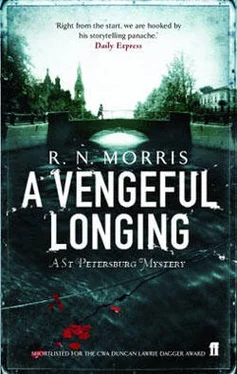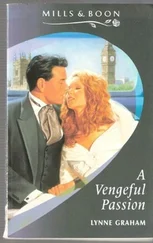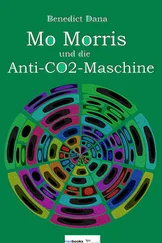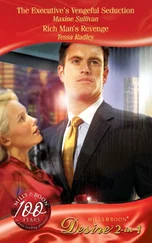R. Morris - A Vengeful Longing
Здесь есть возможность читать онлайн «R. Morris - A Vengeful Longing» весь текст электронной книги совершенно бесплатно (целиком полную версию без сокращений). В некоторых случаях можно слушать аудио, скачать через торрент в формате fb2 и присутствует краткое содержание. Год выпуска: 2008, ISBN: 2008, Издательство: Faber & Faber, Limited, Жанр: Исторический детектив, на английском языке. Описание произведения, (предисловие) а так же отзывы посетителей доступны на портале библиотеки ЛибКат.
- Название:A Vengeful Longing
- Автор:
- Издательство:Faber & Faber, Limited
- Жанр:
- Год:2008
- ISBN:9780571232536
- Рейтинг книги:3 / 5. Голосов: 1
-
Избранное:Добавить в избранное
- Отзывы:
-
Ваша оценка:
- 60
- 1
- 2
- 3
- 4
- 5
A Vengeful Longing: краткое содержание, описание и аннотация
Предлагаем к чтению аннотацию, описание, краткое содержание или предисловие (зависит от того, что написал сам автор книги «A Vengeful Longing»). Если вы не нашли необходимую информацию о книге — напишите в комментариях, мы постараемся отыскать её.
A Vengeful Longing — читать онлайн бесплатно полную книгу (весь текст) целиком
Ниже представлен текст книги, разбитый по страницам. Система сохранения места последней прочитанной страницы, позволяет с удобством читать онлайн бесплатно книгу «A Vengeful Longing», без необходимости каждый раз заново искать на чём Вы остановились. Поставьте закладку, и сможете в любой момент перейти на страницу, на которой закончили чтение.
Интервал:
Закладка:
Porfiry’s hands snapped together in a single loud clap. ‘Got one!’ he cried. He met Virginsky’s and Nikodim Fomich’s bemusement with a smile of serene satisfaction. ‘A fly. The kvas worked. They are drowsy now.’ His smile solidified as he looked down at his clasped hands.
7
Three men were squeezed into the back of the drozhki speeding along the northern embankment of the Fontanka. The play of light over the water’s surface drew Porfiry’s gaze; his eye was baffled by the luminous networks that formed and folded in the instants of their passing. The tide flowed away behind them, provoking a feeling of uncertainty in the magistrate, the sense almost that he was making a mistake, such was the strength of the river’s beckoning. He turned away from it. His companions, Virginsky to his left, Salytov to his right, were lost in their own thoughts. Both men stared straight ahead, past the standing, shouting, whip-happy driver, to the next bridge, the Chernyshov, which marked their destination.
As they traversed the riverside facade of the Ministry of Internal Affairs, Porfiry was put in mind of a prison cell. The white columns that masked the upper two storeys looked like a grille of bars, through which the recessed windows peeped. The building as a whole imposed itself on its stretch of the embankment with a squat and brutish authority. Its juxtaposition to the fugitive Fontanka emphasised its own solid immovability. Unlike the river, the building wasn’t going anywhere.
Again there were arches, Porfiry noticed, feeling the same twinge of annoyance as when he had looked upon the arches of the house at the eleventh verst. A common enough architectural motif, especially on the neoclassical buildings in which St Petersburg abounded — it was surely a mark of desperation to place any significance on its recurrence?
Perhaps those voices of doubt that Nikodim Fomich had reported to him were right. Could it be that he was losing his way in this case — or rather, these cases ? Was it not perversity that made him view the murders as related? Each of the connections taken alone was far from conclusive, an assumption that could easily turn out to be an error; which meant that the trail he had been following was nothing more than a series of false steps.
The light-coloured plaster and brickwork of the ministry building gave it a harsh, impenetrable lustre that reflected his doubts back at him. For relief his gaze settled on Virginsky’s face. Porfiry wondered if all along he had not allowed himself, despite his better judgement, to be swayed by the young man’s persuasive fervour. Dismissing the thought, he looked quickly at Lieutenant Salytov, who, seeming to sense his attention, stiffened in his seat, lifting his head, although self-consciously refusing to face him. Porfiry knew — and had dismissed — Salytov’s view of the Meyer case, that the chocolates had been poisoned by a revolutionary cell centred around Ballet’s the confectioner’s. He knew that the policeman had been led to his theory by prejudice. But really, was it not Porfiry’s own prejudice that had led him to suspect an anonymous official of being capable of the worst of crimes, simply because of his own frustrations over an open drain?
The drozhki took the corner into Chernyshov Square recklessly, causing the driver to topple back on to his seat, and abuse his horse all the more. And then it came to an abrupt halt, whipping the passengers backwards and forwards like shaken dolls.
Virginsky and Salytov sprang out of the drozhki simultaneously, leaving Porfiry rooted to the centre of the seat.
The square was congested with carriages, ready to bear the orders of the central administration to the furthest reaches of the empire. Waves of men in civil service uniforms flowed in and out of the entrance. Some hurried into waiting carriages that then became snarled in the throng of unmoving vehicles.
Porfiry sensed the impatience of the other two as they looked up at him from either side. The driver too turned round to cast him a quizzical glance. Porfiry, however, felt no inclination to move.
‘This has always struck me as the most premeditated part of our premeditated city,’ he said, looking across the square and along the Teatralnaya, the straight and strangely symmetrical street that led to the Alexandrine Theatre. ‘The vision of one man imposed on a whole zone. The architect as autocrat, although it is true to say that the architect’s vision can only ever be realised with the help of the true autocrat’s will, to say nothing of the latter’s power and money.’
‘What are you talking about, Porfiry Petrovich?’
Porfiry seemed to wink at Salytov’s brusque demand. ‘I rather think that a murderer is like an architect of destruction, don’t you? The crimes he shapes are analogous with the structures an architect imposes on the landscape. A critic of murder — that is to say a detective — becomes adept at recognising and interpreting the stylistic devices and motifs in play.’ Porfiry turned his head slowly to glance down at the policeman. ‘The architect, working in partnership with the true autocrat, creates and constructs a new reality consistent with his fantasy, in his case a harmonious and ordered fantasy, which we deign to call his vision. In the case of a murderer, he is the sole autocrat of his own universe. It occurs to me that the fantasy that guides him may be equally as harmonious and ordered as the architect’s, or at least so it appears to him. Indeed, perhaps it is his desire to impose order that compels him to murder. ’ Now Porfiry turned his head, with the same slow movement, to face Virginsky. ‘If that is the case then it may well be that our murderer is indeed a minor civil servant, a petty functionary whose actual power falls far short of his ambition and his egoism. A man who has felt himself thwarted and frustrated — slighted, insulted, overlooked — throughout his life. Equally, that same description would apply to one who overtly sets himself up against the state, one who would seek to overthrow the state and replace it with something else of his own design. A revolutionary, for every murder is an act of revolution against God and nature-’ Porfiry broke off.
‘And so?’ prompted Virginsky.
‘And so,’ said Porfiry, his voice weary as he hauled himself out of the drozhki , ‘we must proceed with caution.’
At that moment a closed black wagon marked Politsiya drew up beside them. Porfiry raised a questioning eyebrow at Salytov who nodded grimly.
‘Very well,’ said Porfiry, mirroring Salytov’s nod. ‘The wagon is here. Let us talk to Rostanev.’
Echoes of murmured conversations filled the high, marbled lobby. Both urgent and muted, they rose from the shuffling men who crossed the polished floor, to drift like dust into the niches of the walls, before settling on the blank-eyed, stone-deaf busts. The air was stifling, clogged with spinning particles. A desiccated heat drew the breath from Porfiry. Even so, he felt the longing for a cigarette. A large double-headed eagle, emblem of the imperial house, was moulded on to the wall that faced them, picked out in gold leaf. The strange beast looked with inevitably divided attention, left and right, into the corridors that led off from the hall. The new civil flag, that is to say the flag that had been adopted a decade earlier, but which Porfiry still could not bring himself to regard as Russian, hung limply from a staff above the heraldic form, its bands of black, gold and white crumpled into each other. Porfiry saw Salytov’s snarl at the sight of it: ‘Germans!’
The word reverberated clearly above the hubbub, like a hard ball of sound tossed carelessly against the walls. Heads turned in outrage.
Читать дальшеИнтервал:
Закладка:
Похожие книги на «A Vengeful Longing»
Представляем Вашему вниманию похожие книги на «A Vengeful Longing» списком для выбора. Мы отобрали схожую по названию и смыслу литературу в надежде предоставить читателям больше вариантов отыскать новые, интересные, ещё непрочитанные произведения.
Обсуждение, отзывы о книге «A Vengeful Longing» и просто собственные мнения читателей. Оставьте ваши комментарии, напишите, что Вы думаете о произведении, его смысле или главных героях. Укажите что конкретно понравилось, а что нет, и почему Вы так считаете.












